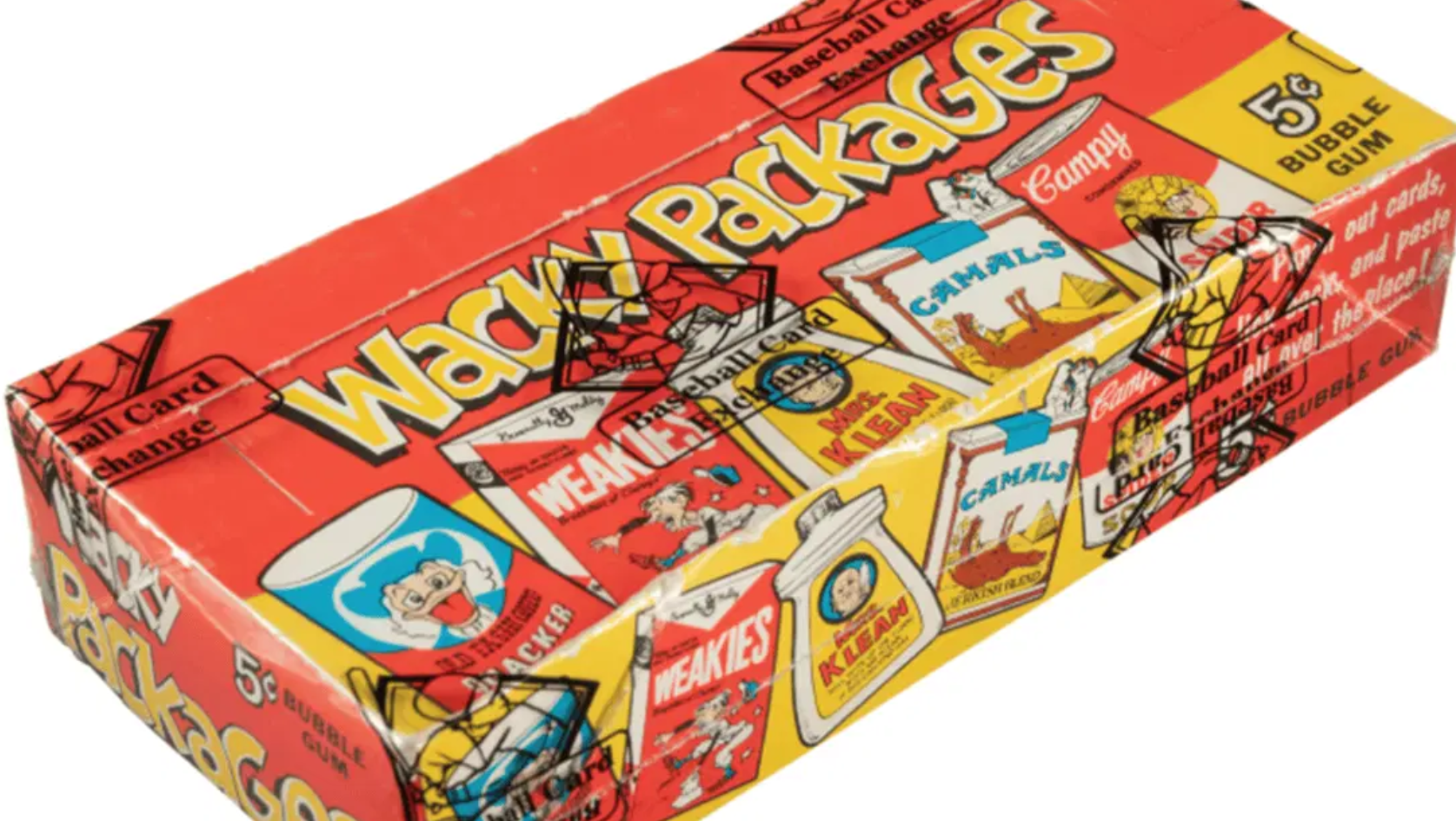
In a dazzling display of nostalgia-fueled bidding frenzy, a box of 1967 Wacky Packages recently boasted a staggering selling price of $79,300 at Heritage Auctions. This eye-watering figure not only signifies a new peak for these delightfully irreverent stickers but also underscores the swelling tide of enthusiasm for rare non-sports memorabilia among collectors who yearn for the outrageous days of their youth.
Wacky Packages, launched by Topps in the whimsical year of 1967, provided a cheeky twist on popular consumer brands. These satirical stickers lampooned the likes of well-known grocery staples, transforming them into laugh-out-loud parodies with a comedic flair that only the innocence and boldness of the 60s could produce. Envision dabbling in the scandalous act of affixing a smirking “Cracked Jerk” sticker where a “Cracker Jack” had previously reigned—such was the joy these playful punch-out cards delivered to the boisterously insubordinate children of the time.
Adding a considerable layer of intrigue to these stickers is the involvement of none other than Art Spiegelman. Before he donned his Pulitzer Prize-winning cape with “Maus,” Spiegelman inked his creative genius into the very fabric of Wacky Packages, contributing early artwork that now, in retrospect, serves as a dazzling piece of both his and the world’s artistic history. The Beatles of non-sports collectibles, these punch-out, lick-and-stick treasures initially provided a fun, albeit slightly mischievous, escape for millions of kids.
However, all was not rosy in the land of parody. The mischievous charm of Wacky Packages found themselves in the crosshairs of the brands they parodied. Companies such as Ritz, Jolly Green Giant, Morton Salt, and 7-Up—let’s call them the crème de la crème of pantry staples—weren’t particularly keen to see their illustrious images twirled into comedy. Legal skirmishes ensued, as these titanic brands sought to put a lid on Topps’ satirical escapades, resulting in the removal of 12 of the original designs. Anoysng though this was at the time, this scramble only served to fuel the allure of pre-legal-action cards—today’s white whales for collectors.
Realizing that the zestful demand for such parodic plays on everyday life was far from ebbing, Topps expanded their offerings. They didn’t just fold. Oh no. After smooth-talking their way out of legal jangles, Topps paved the comedic path with “Wacky Ads” in 1969 and reintroduced Wacky Packages in sticker format by 1973. These peel-and-stick versions mirrored the snowballing popularity of baseball cards in schoolyards, but with a delightful, snarky twist that baseball cards simply couldn’t compete with.
Despite the ebb and flow of public interest—taking a detour into semi-retirement from 1992 until 2004—the magic of Wacky Packages has periodically resurfaced, finding its home once again with a devout cult following. Enthusiasts and collectors still revel in the tongue-in-cheek humor and simple, satirical designs that defined a generation’s giggles.
This latest record-breaking auction serves as a vibrant testament that nostalgia paired with pop culture history results in a curiously potent mix. It illuminates the powerful allure that vintage non-sports collectibles wield in today’s market – a market where aspirational prices can soar as easily as the giggles once did when these stickers were peeled from their waxy prisons in lunchboxes and slapped onto school binders.
Unopened, unmolested Wacky Packages reign supreme in this auction room drama, proving that the chatter about collectibles is rich and multilayered. It is less about the tangible paper and glue and more about recapturing a splash of the cheeky joie de vivre of days gone by.
In a world often drenched with worry and uncertainty, these flashes of cultural parodic brilliance provide a sparkling glimpse into the past, drawing in those yearning for connection with a simpler, more playfully subversive era. For a commodity once tinged with societal discord to transform into a coveted object of high financial regard must seem ludicrous, yet curiously apt. It’s a comic relief, perhaps, in a universe forever thirsty for humor. And, judging by the auction hammer’s decisive thud as it sealed this deal, the thirst is getting quite robust indeed.
